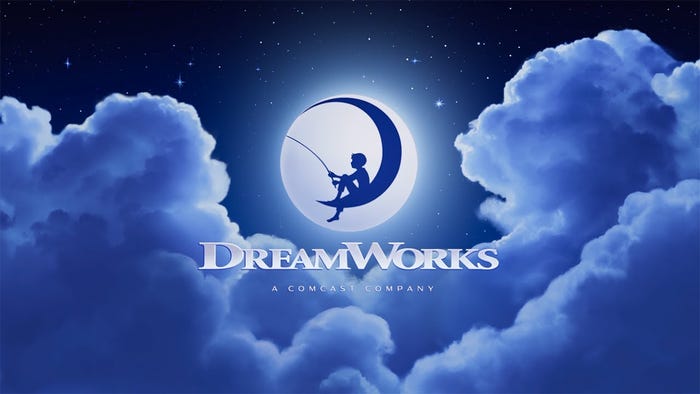The Controversy Multiplier
A guide to controversy for AAA publishers, written by an indie developer. Use it to gauge the increase in media awareness and sales your game would get if using any of the points outlined in the guide!

The Controversy Multiplier
Welcome to The Controversy Multiplier: A guide to controversy for AAA game publishers. This guide aims to explain the concept of using controversy to increase marketing reach and sales. Many publishers today seem to believe that controversy is a bad thing that is best left to smaller indie developers with a niche demographic, for it might scare large amounts of their broad customer base away.
This is completely false!
As this guide will show you, using controversy as a tool for developing and marketing your games can have measurable positive effects. Some publishers have already jumped on this, so don't fall behind! Use this guide when looking for new game concepts to fund, or when giving feedback to ongoing projects. And remember, as the market evolves many of the below points will become unusable as their controversy fades! You better act while the market still has some unexplored areas left for you to tap into.
Are you ready to spice up your game? Here we go.
This is how it works
In this guide, you will find two lists of bullet points for you to use when making decisions during your game project. One is for the game itself, the other is for production/staff/management and other areas that are related to game development but not part of the actual software. The multiplier supplied with each bullet point can be multiplied with each other to give your projected total increase in marketing visibility. The controversy multiplier number is derived from a wide array of parameters and includes, but is not limited to: The possibility media will pick up on your product, the possibility of twitter storms occurring, the ability for consumers to remember your product, your products ability to stand out on the market, and so on.
An example
Let’s say that you have a female lead who is also a lesbian. This will net you an increase of 1.1 for the Female Lead and 1.4 for the HBTQ Lead points. This will have the following result:
1.1 x 1.4 = 1.54x Controversy Multiplier Value
It is important to note that the final value is larger than what you would have gotten if you had used addition to summarize your point values. This is because the more controversy you add, the more they will synergize with each other to help you reach even greater heights in marketing and sales.
To put this in real world terms: Your game would have enjoyed a 54% increase in free marketing and the sales that comes with it.
You don’t believe me? Look at the game Gone Home and tell me it would have gotten the same amount of press and media presence had it not included those two points. Admittedly, the numbers in this guide are more of a guideline than hard fact. However, they still work as a handy outline and are proven in real games being released time and time again.
Now, let’s begin. Pick the points below that you want, or that your game already has, and calculate your own Controversy Multiplier Value!
Game Related Controversy
Female Lead, 1.1x – This used to be very controversial only a few years ago. However, in recent times more games have featured female leads and as a result this point does not increase your controversy value as much. It is still a great option for those who are new to controversy and are looking for a lighter entry.
HBTQ Lead, 1.4x – If used properly this will net your Controversy Value a huge increase. However, make sure that the implementation is good and that you don’t fall into any of the weak archetypes. If your game ends up with a weak representation, the value of this point will change to 0.8x due to the negative press.
Bearded Male Lead, 1x – The market is saturated with these. No one cares. Not even bearded males.
Normal Sized Lead, 1.2x – It is still a fact in the games industry that many human-like characters are made to portray athletes. If it fits your game, evaluate the possibility of including a more well-rounded character design.
Non-White Character, 1.15x – The market of AAA games is still saturated with white characters. Think about the possibility of including characters of different ethnical backgrounds. Increase the multiplier to 1.25x if this is the main character. This effect does not stack with additional characters of the same background.
No Guns/Weapons, 1.15x – Now I hear you cry: “But there are tons of games that do not include guns! Why would this spark controversy?” While that is true, how many AAA games can you mention that do not include weapons of some sort? Remember, this guide is for AAA publishers first, and this is still a quite unexplored area for AAA publishers (except for some outliers like Nintendo).
Real Sex, 1.6x – Create a sex scene that is NOT porn/oversexualized/tied to an achievement/a reward and is instead actually tied to love. Not for beginners, discuss with the creative lead of your project to decide if your studio is up for it. Gives a huge boost if pulled off properly, as this is almost never done in games.
Non-Violent Conflicts, 1.2x – All stories revolve around some kind of conflict. However, AAA games stand out as the part of our medium with the most focus on conflicts based in violence. Try to find a conflict that does not need to resort to violence to be solved! Most games that do this are either simulators or puzzle solvers, talk to your studio head and see if you can find a way to innovate in other genres!
Racism, 1.3x – Currently very topical in North America, due to shootings over the last year by police. Racism has been used in games previously, but there is potential in tapping into this area by exploring contemporary events. As a safeguard against the risk of making poor portrayals, see if there is someone in your workspace who might be suffering from racism. Ask them for their input, but try not to be offensive while doing so.
Religion, 1.4x – I am not talking about the graphical aesthetics (like Diablo), but about the essence of religion. Religion tries to answer one or more of the following questions; what happens after I die? What is the world order, and my place in it? How should I live my life? What should I believe in? If you can make your game address one or more of these questions in a meaningful way, you are bound to stand out. Remember, you do not need to give a clear answer, addressing them in a contemplating manner is fine. Make sure that at least someone on your team has a background/interest in theology/philosophy.
Mental Health, 1.3x – Including some kind of inner struggle can be a dramatic addition to any game’s story. To avoid going off rails and generating negative press, make sure to check your facts! As a bonus, here are some facts to start you off: depression is a disease that can be treated. Being schizophrenic is not causally linked to being more violent. Having OCD does not make you more energetic.
Production Related Controversy
Employ a vocal CEO, 1.25x ��– If one of your higher-ups in the studio is very vocal and easily jumps on heated contemporary topics, this is bound to increase the awareness and presence of your studio.
Refuse DLC, 1.3x – With the current trend being that most AAA games are expected to come loaded with season passes, DLCs and weapon packs, do not underestimate the freshness of simply saying “Listen gamers, this is it. You will always get the complete experience when you buy from us.”
Launch Event with 1-Star Service, 1.4x – Organizing a launch event is often about giving the journalist a memorable experience which gets tied to the game, hopefully increasing positive press. However, an agitated and riled up journalist is much more driven to create press with larger outreach. To the consumers, you can always tilt the narrative to sound like the journalist is an entitled prick and that the money saved goes straight into production of the next game. Thusly, you have lost nothing, saved money, and your game’s name is on everyone’s mind. This synergizes well with the “Employ a vocal CEO” point.
Make a stand for/against Feminism 1.4x / 0.6x – This point will affect the following two camps; those who are pro-feminism, and those who are against. Whichever one you pick, assume that the side you chose will get the 1.4x increase and that the other will get the 0.6x decrease. This point can be disastrous if picked together with the “Employ a vocal CEO” point. Beware of storms.
Write an article about Controversy, 1.1x – By writing and speaking openly about the controversy in your game, it becomes obvious to your customers that you are a pusher of boundaries, a pioneer in the industry. This is an easy and cheap way to boost exposure. This will help you stand out on the market as most publishers/game developers are not interested in taking part in controversy themselves. But remember, everyone is interested in reading about it.
Final Words
Remember that the above points are not a substitute for making a good game. They are used to multiply your base media presence and resulting sales, not add to it. The list is not comprehensive, I have added the points that I feel are most important in today’s market to help start you off. If you can think of other points that you believe would fit, feel free to add them with their own values and use them in your calculations!
Still, remember that moderation is key. Adding all of the above points into a single game would probably make it quite chaotic and possibly worse… or would it?
Who wrote this?
My name is Michael Levall and I am a game developer from Sweden. I am currently working on the game Please Knock on My Door which is a game about depression, loneliness and phobia. If you want to hear more from me, find me on the links below:
Developer Diary on #GameDevThoughts, next broadcast on October 14th 7PM CEST
Send me your thoughts on twitter @GTLime
About the Author(s)
You May Also Like













